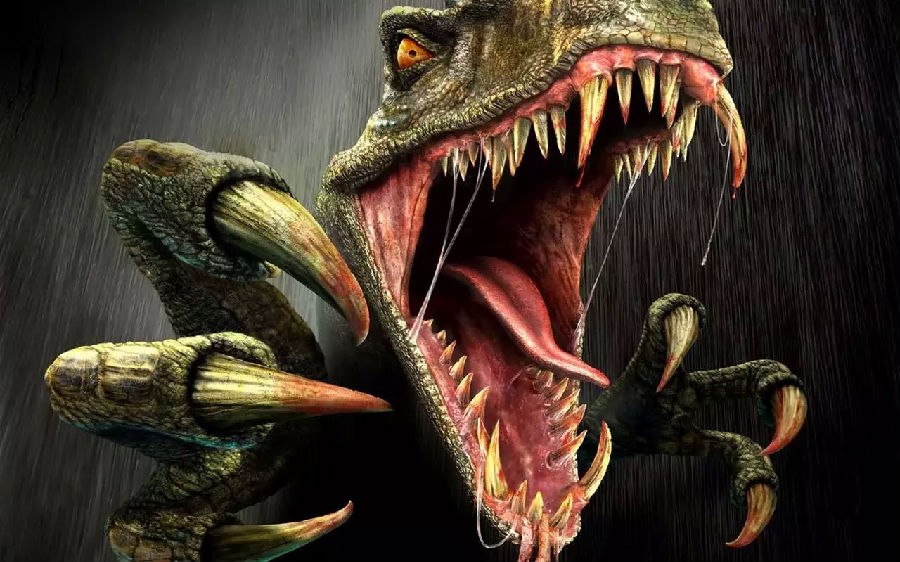But dinosaurs weren't the only animals on the planet.
不過(guò)恐龍并不是地球上唯一的動(dòng)物。
There were other,humbler lifeforms that had lived in the dinosaurs"shadow for a very long time.
還有其它較卑微的動(dòng)物活在恐龍的陰影下很長(zhǎng)一段時(shí)間。
When floods and fire storms hit, they found shelter on the ground.
洪水和大火侵襲時(shí)它們?cè)诘氐紫抡业奖茈y所。
Some hid deep inside trees and plants.
有些躲在樹(shù)木和植物深處。
Others took refuge beneath the soil.
其它則藏身在土壤下。

And small mammals,like Mesodma, survived by scampering into burrows.
像擬間異獸這些小型哺乳類,驚慌地跑進(jìn)洞穴而得以幸存。
Down here they were protected from the worst the asteroid could throw at them.
它們?cè)诙囱ɡ锒氵^(guò)小行星帶來(lái)的災(zāi)難。
The carth would be inberited by anitmals that were good at hiding.
地球?qū)⒂缮朴诙悴氐膭?dòng)物繼承。
Fishwere sheltered beneath the water.
魚類在水里受到保護(hù)。
So are the aquatic reptiles.
水生爬蟲類也—樣。
Birds, especially waterfowl, could survive by diving underwater or hiding in burrows.
鳥類特別是水鳥,能夠潛入水里或藏進(jìn)洞穴活下來(lái)。
It will be years before all the Sun's energy could reach the land again.
太陽(yáng)的能量可能要花好幾年才能再次接觸陸地。
But the heavy cloud slowly begins to clear.
不過(guò)厚重的云層已開(kāi)始慢慢散去。
In the Gulf of Mexieo wHere the asteroid struck, a shallow orater can be seen.
在墨西哥灣小行星撞擊的位置可以看見(jiàn)一個(gè)淺隕石坑。
A tiny scar for such a fatal wound.
傷疤雖小造成的創(chuàng)傷卻非常要命。
Out of the ruins, nature starts over.
在一片廢墟里,大自然重新開(kāi)始。
Simple organisms like mold and fungus dominate the burnt and rotting landscape.
簡(jiǎn)單有機(jī)體像霉菌和真菌,占領(lǐng)了被焚燒和腐化的大地。
Then new growth emerges, and one plant in particular...Ferns..
接著新生命探出頭來(lái),特別是一種植物——蕨類。











